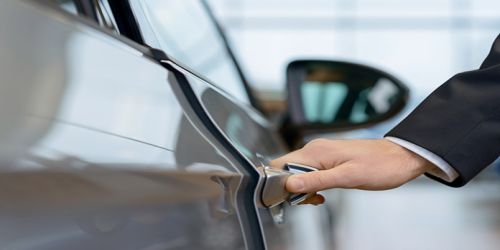
Navigating the Automotive Landscape: Key Insights into the Car Business
Advertisement
The automotive industry is a dynamic and ever-evolving landscape, encompassing a myriad of sectors from manufacturing and sales to service and innovation. As we delve into the intricacies of the car business, we uncover key insights that shed light on the driving forces behind this vast and multifaceted industry.
Manufacturing and Production:
At the heart of the car business lies the complex world of manufacturing and production. Automotive manufacturers, ranging from global giants to niche players, engage in the intricate process of assembling vehicles. Cutting-edge technology, robotics, and precision engineering are pivotal in creating the diverse range of cars that cater to the varying needs and preferences of consumers.
The manufacturing process involves several stages, including design, prototyping, testing, and mass production. Advances in manufacturing technologies, such as 3D printing and automation, have streamlined production, resulting in more efficient and cost-effective assembly lines.

Market Trends and Consumer Preferences:
Understanding market trends and consumer preferences is a cornerstone of success in the car business. Manufacturers and dealerships closely monitor shifts in consumer behavior, technological preferences, and environmental concerns to adapt their product offerings accordingly.
In recent years, there has been a noticeable surge in the demand for electric vehicles (EVs) and sustainable options. This shift is influenced by increasing environmental awareness and a growing emphasis on reducing carbon footprints. Hybrid and fully electric vehicles have gained traction, prompting manufacturers to invest heavily in green technologies.
Moreover, the rise of connectivity and smart features in cars reflects the evolving preferences of modern consumers. Integrated infotainment systems, autonomous driving capabilities, and advanced safety features are becoming standard expectations, prompting car businesses to innovate continuously.
Sales and Distribution:
The sales and distribution aspect of the car business is a critical link between manufacturers and consumers. Dealerships play a pivotal role in connecting buyers with the right vehicles, providing essential services such as test drives, financing options, and after-sales support.
The advent of online platforms and digital sales tools has revolutionized the way cars are sold. Consumers can now explore virtual showrooms, compare models, and even complete the purchase process online. This shift towards digitalization has accelerated, especially in response to changing consumer habits and the impact of global events.

In addition to traditional dealerships, various online marketplaces and apps have emerged, offering a diverse selection of new and used cars. These platforms provide transparency, allowing buyers to access detailed information about vehicles, compare prices, and read reviews before making informed decisions.
Service and Maintenance:
The car business extends beyond the initial sale, with a robust service and maintenance sector catering to the ongoing needs of vehicle owners. Service centers, both manufacturer-affiliated and independent, provide routine maintenance, repairs, and upgrades to ensure the longevity and performance of vehicles.
The increasing complexity of modern cars, with advanced computer systems and intricate components, has led to a growing demand for skilled technicians and specialized services. Car businesses invest in training programs and cutting-edge diagnostic tools to meet these evolving service requirements.
Preventive maintenance and technological advancements, such as predictive analytics for vehicle health, contribute to a proactive approach in addressing potential issues before they escalate. The service sector plays a crucial role in enhancing customer satisfaction and fostering brand loyalty.

Innovation and Technology:
Innovation is a driving force in the car business, shaping the industry's trajectory and pushing boundaries. Technological advancements continue to redefine the driving experience, safety standards, and environmental sustainability.
Autonomous driving technology represents a paradigm shift in the automotive landscape. Companies are investing heavily in research and development to bring self-driving vehicles to the market. While regulatory challenges persist, the potential impact on road safety and transportation efficiency is substantial.
Furthermore, connectivity features and the integration of artificial intelligence (AI) enhance the overall driving experience. Smart assistants, real-time navigation, and vehicle-to-vehicle communication are becoming integral parts of modern cars, reflecting the industry's commitment to staying at the forefront of technological progress.
Challenges and Opportunities:
The car business is not without its challenges. Economic uncertainties, geopolitical factors, and global events can significantly impact sales and production. The transition to electric vehicles poses challenges related to infrastructure, battery technology, and consumer acceptance.
However, challenges also present opportunities for innovation and adaptation. The push towards sustainability has opened avenues for the development of eco-friendly technologies, including hydrogen fuel cells and advancements in battery storage. Moreover, the rise of shared mobility services and the concept of mobility as a service (MaaS) present new business models and revenue streams for industry players.
Advertisement
Advertisement
- Previous article
- Mastering the Art of Credit Card Approval!
- Next article
- Unraveling the Tax Mysteries of Credit Card Rewards!
Advertisement
OTHER NEWS

Understanding Short-Term Life Insurance: A Quick Guide!
BY Wendy

Buy a Second Home, you Need to Know This!
BY Little Grapes

Safeguarding Your Rental: A Comprehensive Guide to Renters Insurance!
BY Wendy

How do I buy Auto Insurance?
BY Little Grapes

How do I use my Auto Insurance?
BY Wendy

Some Things About Credit Cards.
BY Wendy
RECENT NEWS
-

Demystifying Bitcoin
-

Securing and Maintaining High Limit Credit Cards: A Comprehensive Guide!
-

The investment value of men’s watches
-

Guarding Against Credit Card Fraud: What to Do If Your Identity Is Compromised?
-

Strategies for Success in the Watch Industry
-

Understanding Survivorship Life Insurance: Planning for the Future Together!
 0
0 0
0